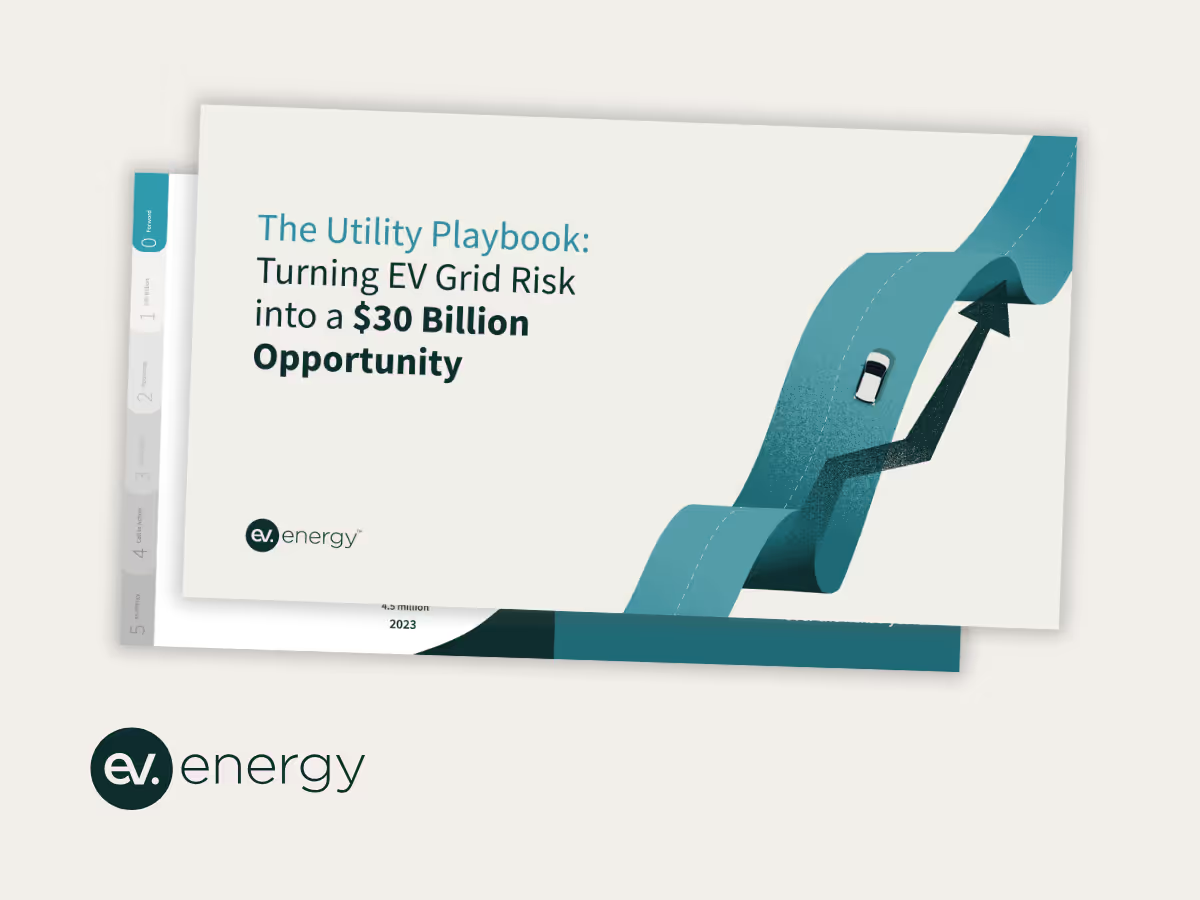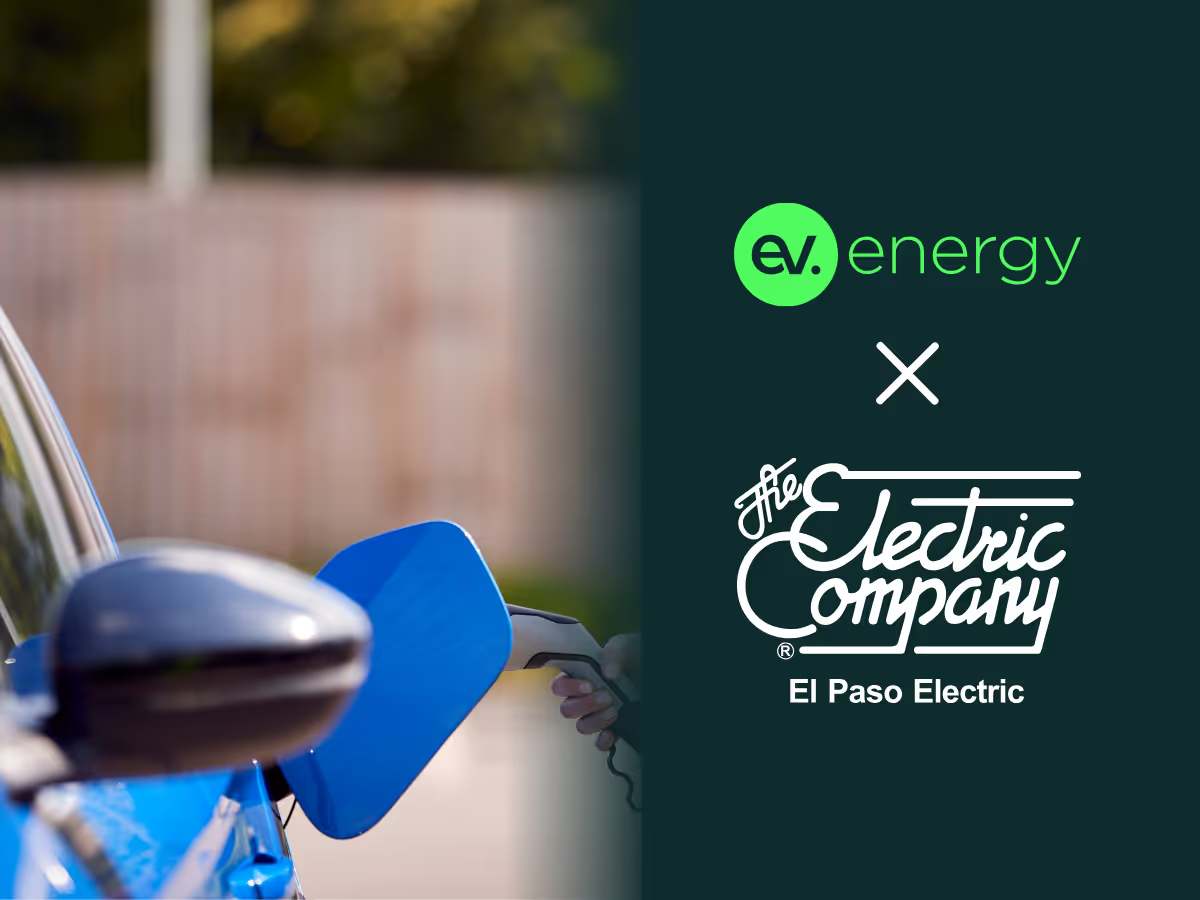New report calls for ‘urgency’ in turning EVs into grid assets, or risk grid decarbonization


ev.energy’s latest market research paper outlines how energy and automotive leaders hold the keys to unlocking electric vehicle charging flexibility
LONDON, UK, 1 April 2024 – ev.energy, the leading electric vehicle (EV) smart charging software platform, today published its latest report - Metering Matters: Unlocking Electric Vehicle Charging Flexibility Through the Asset Meter. The report outlines how current grid management, policy, and market designs do not align with the energy and automotive industry’s vision for the future power of EVs.
The report highlights the urgent need to turn EVs into a grid asset for the power system or risk them becoming a liability. To avoid grid overload and soaring costs, the use of EVs for grid services must be enabled. This involves working with aggregators, to align energy market standards, and EV metering capabilities, to effectively integrate EVs into the energy ecosystem.
Commenting on the report ev.energy’s William Goldsmith, Director of Strategy & Innovation said, “A collaborative effort is essential to truly harness EV flexibility. The report’s findings demonstrate an urgent need to reform flexibility infrastructure and align market rules. EVs are a powerful tool to effectively manage the grid. However, that’s only possible if those EV Virtual Power Plants (VPPs) are built to meet the requirements for grid services.”
Through extensive research, data collection, and collaborative testing, this report explores how to achieve more flexible EV charging. It also warns that if the appropriate action isn’t taken, a continued rise in energy bills, alongside reliability issues, and holdup in grid decarbonisation efforts can be expected. To avoid this the report outlines five core recommendations, spanning:
- Applying metering rules to the aggregate, not the individual asset
- Empowering new entrants in power markets through principle-based adaptation
- Creating collaborative standards to improve interoperability
- Embracing an open hardware approach for the benefit of EV drivers and the grid
- Improving vehicle telematics metering to unlock high value services
ev.energy’s Policy and Regulation Director, Jeremy Yapp, also shared his thoughts on the report's findings, commenting, “This paper shows that aggregating metering data can enable demand-response assets to participate in real-time markets. This is a significant step forward. Clearer, more appropriate market rules will enable aggregators such as ev.energy to provide the resilience and flexibility on which a decarbonized electricity system depends.”
This report is compiled of learnings from two sources. An Operational Metering Trial was conducted that saw ev.energy partner with the Power Responsive team at National Grid ESO (NGESO), the system operator in Great Britain, to investigate the issues of participating EV assets in real-time power markets, in particular the Balancing Mechanism (BM). The report's findings are also underscored by an extensive evaluation of the metering capabilities of various EV charging technologies relative to energy markets’ requirements, which highlighted the urgent need for change and convergence.
To learn more about actions to unlock EV charging flexibility, please contact us.
Notes to editors
This report was compiled by a team of energy and automotive experts from ev.energy:
- William Goldsmith, Global Head of Grid Services & Innovation
- Michael Kenefick, Grid Services Manager
- Giulia Escher, Tech Lead Virtual Power Plant
- Jeremy Yapp, Policy and Regulation Director
ev.energy
ev.energy is a proven and experienced specialist in managed EV charging with activity across Europe, North America, and Australia. Powering over 40 managed charging programs across the globe, we work with utilities, manufacturers, and others to design and deliver customer-facing EV charging management that delights users, while delivering grid and network benefits. With over 150,000 EVs under management on our platform worldwide, ev.energy has the depth of knowledge and experience to deliver EV charging management for a clean energy future.
Operational Metering Trial Partners
Power Responsive is a stakeholder-led programme, facilitated by National Grid ESO, to stimulate increased participation in the different forms of flexible technology such as Demand Side Response (DSR) and storage. It brings together industry and energy users, to work together in a coordinated way. A key priority is to grow participation in DSR, making it easier for industrial and commercial businesses to get involved and realise the financial and carbon-cutting benefits.
Flexitricity
Flexitricity created and now operates the first, largest, and most advanced flexible energy portfolio in Great Britain and has unsurpassed knowledge of the market and its requirements. Flexitricity’s virtual power plant brings together a wide range of asset types across many industries - from large-scale energy storage projects and gas peakers, hospitals, universities, and produce growers to smart homes and EV flexibility.
.png)

.avif)
.avif)








.avif)










.avif)










.avif)












































